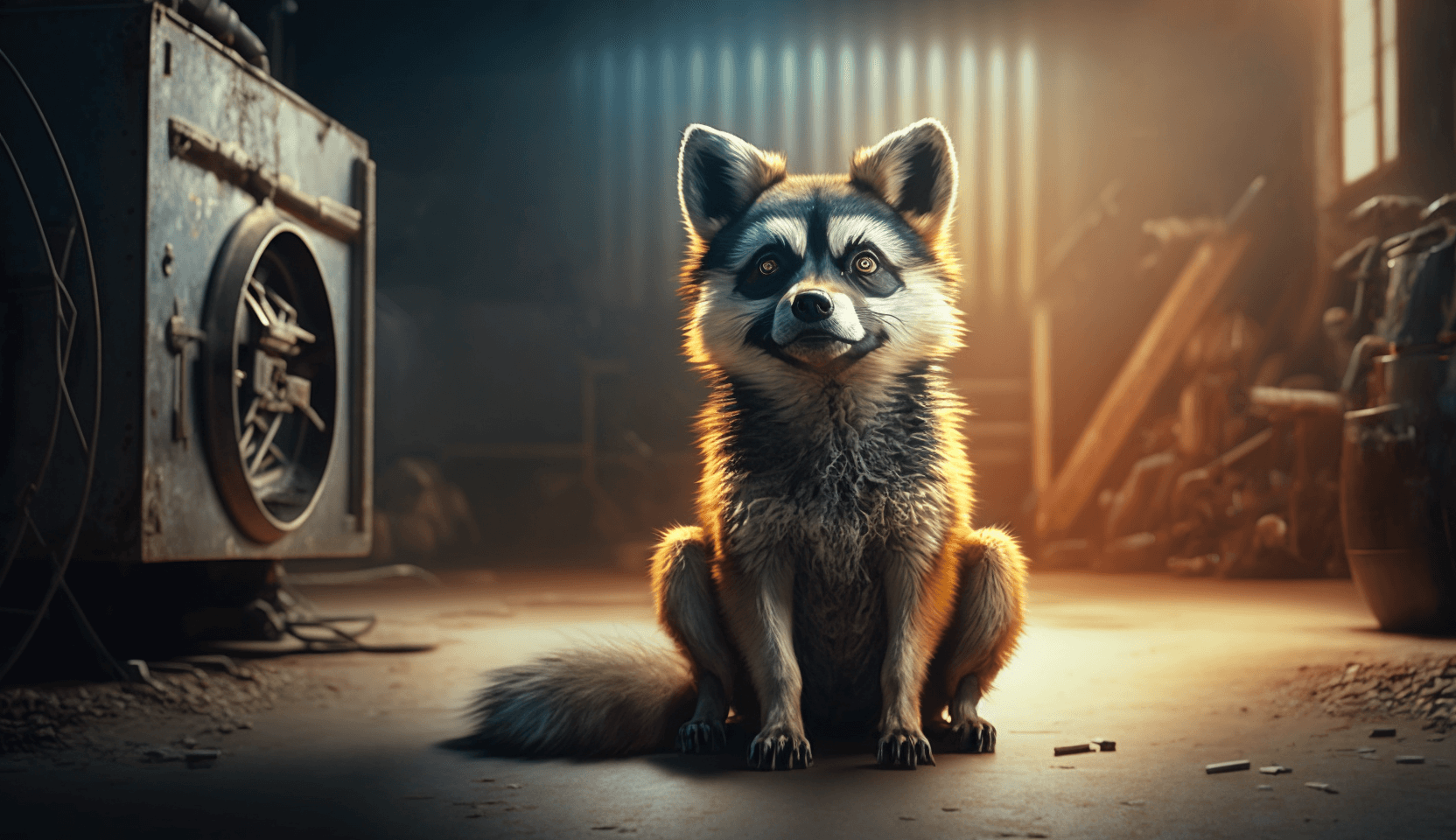🦝 Da Kine Raccoon Dogs: What Dey Stay, Why Dey Sellin’ Fo’, An’ Da Possibility Dat Dey Da Cause Fo’ Da Covid-19 Pandemic 🦠
On Thursday, da scientist guys wen release some new data about da possible origins of da Covid-19 pandemic – and one kine strange, small animal stay right in da spotlight.
Meet da raccoon dog; he stay named dat cuz of his black facial markings, which give da animal one mask-like look an’ a resemblance to dem infamous trash can raiders.
Dem animals was sometimes sold at da Huanan Seafood Wholesale Market, where many virologists tink dat da Covid-19 pandemic may have started.
Da scientists wen tell us before dat da market swabs had tested positive for da coronavirus dat causes Covid-19. Da new data show dat some of da same swabs had substantial genetic material from raccoon dogs.
Da findings no prove dat raccoon dogs wen get da virus or dat dey wen pass um on to humans. But dey do match up wit da possibility dat da wild animals at da market wen set off da Covid-19 pandemic.
Hea’s what you gotta know about dis animal dat stay all ova da news.
🦝 What are raccoon dogs? 🦝 Even tho dey stay named dat, raccoon dogs no really closely related to raccoons. Dey stay part of da canid family, which means dey related to domestic dogs an’ foxes. Dey may hibernate in winter, which no odda canids do.
Dey eat all kine stuffs, from rodents to berries. In da summer dey look kinda skinny, but in da winter dey fatten up an’ deir fur gets thicker. Dey usually live in pairs, an’ stay monogamous.
🦝 Where do dey live? 🦝 Raccoon dogs stay native to East Asia, including China, Korea, an’ Japan, where dey stay called tanuki.
Dey wen also spread all ova parts of Europe, where dey consider invasive. Dey sometimes hunted as pests.
🦝 Why dey farm an’ sell um? 🦝 People been farming raccoon dogs fo’ deir fur fo’ one long time. China one of da main producers of raccoon dog pelts; in 2014, da country wen produce more den 14 million pelts, which 100 times as much as Europe, according to one report.
Dey also get sold fo’ da meat at live animal markets. Scientists wen report dat dey was sold at da Huanan Seafood Wholesale Market at least as late as November 2019.
🦠 Are dey da source of da Covid-19 virus? 🦠 Not fo’ shua. Lab experiments wen show dat raccoon dogs can catch an’ spread da novel coronavirus, but dat no mean dat dey stay da natural reservoir fo’ da virus. Even if raccoon dogs at da market wen get infected, dey might just be one intermediate host, catching da virus from bats or anodda species.
Da scientists note dat raccoon dogs an’ bats wen both stay common on an’ around some of da farms dat supplied da market.
Dis kine situation wen happen two decades ago wit da emergence of SARS, which also stay caused by one coronavirus. In 2003, scientists wen find evidence of infected palm civets an’ raccoon dogs at one live animal market in Shenzen, China. But afta, da research wen point to bats as da natural reservoir fo
NOW IN ENGLISH
The Lowdown on Raccoon Dogs: What They Are, Why They’re Sold, and the Possibility They’re Linked to Covid-19 🦠
On Thursday, scientists released new data on the origins of Covid-19, and a peculiar animal was in the limelight. Meet the raccoon dog, which gets its name from black facial markings that resemble a mask and the infamous urban trash can raiders. Some of these animals were sold at the Huanan Seafood Wholesale Market, where many virologists speculate the pandemic may have started.
Previous reports have shown that swabs taken from the market tested positive for the coronavirus that causes Covid-19. The new data reveals that some of these swabs also contained genetic material from raccoon dogs. While the findings do not prove that these animals caused the pandemic, it is consistent with the possibility that wild animals at the market may have set off the outbreak.
Here’s what you need to know about these animals:
🦝 What are raccoon dogs? 🦝 Despite their name, raccoon dogs are not related to raccoons. They belong to the canid family, which also includes domestic dogs and foxes. They may hibernate in winter, which is unique among canids. Their diet consists of rodents and berries, and they fatten up in winter, with thicker fur. They are monogamous and often live in pairs.
🦝 Where do they live? 🦝 Raccoon dogs are native to East Asia, including China, Korea, and Japan, where they are known as tanuki. They have also become an invasive species in parts of Europe and are sometimes hunted as pests.
🦝 Why are they farmed and sold? 🦝 Raccoon dogs have long been farmed for their fur, with China being a leading producer of raccoon dog pelts. They are also sold for their meat at live animal markets, and researchers have reported that they were sold at the Huanan Seafood Wholesale Market until November 2019.
🦠 Are they the source of the Covid-19 virus? 🦠 Lab experiments have shown that raccoon dogs can catch and transmit the novel coronavirus. However, they may not be the natural reservoir for the virus, and if infected, they could be an intermediate host. Scientists note that raccoon dogs and bats were both common around some of the farms that supplied the market, suggesting a similar scenario to the SARS outbreak, where raccoon dogs were intermediate hosts and bats were the natural reservoir.
In conclusion, while raccoon dogs may have played a role in the Covid-19 pandemic, it is still uncertain. It is important to understand these animals and their behavior to prevent the outbreak of future diseases.”







